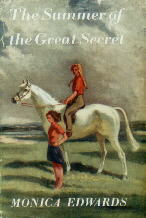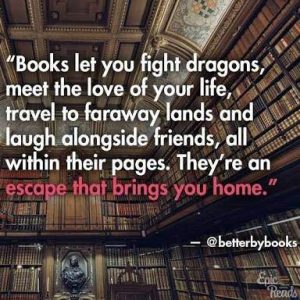Show me the power!
A couple of weeks ago, I was asked the question ‘What is the power of fiction?’
My response was immediate.
‘Absolutely tremendous,’ I said.
‘But how?’ I was asked.
I thought back to my life as a child in the 1950’s. It was a golden time in Australia. We children had freedom to live any which way. We’d walk home from school via bush-tracks, never having to worry about stranger danger. We had outdoor adventures after school and on our school holidays, unsupervised by adults. Riding bikes without helmets along highways and byways, swimming without our parents worrying that we would drown, boating without lifejackets, riding horses without hardhats and high viz vests, climbing trees, building forts, exploring without fear, going out at night to light a fire on the beach to cook sausages and potatoes and knowing we were safe and that our parents knew we were safe.
Thus, fiction had to be pretty damned good in those days. It had to really give us a sense of escape because we were living proof that escape was what a child’s life inherently was.
That’s not to say there weren’t issues for kids in those days. Bullying was rife and there were no failsafes the way there are now. No laws, no support. It was a question of trying hard to turn the other cheek. And we know now that there was rampant child molestation in religious and state institutions of the time. There were also migrant children who had to sink or swim, with a history of pain deeply entrenched in their parents’ psyche.
Which made an escape down the fictional road vital for children for differing reasons.
For me personally, it was all to do with England, taking me to a country I knew about through school, from where a large proportion of our heritage derived but which was so different to our own.
The Famous Five,
Swallows and Amazons,
the Jill pony books,
books by Monica Edwards,
the Drina ballet books,
and books by Noel Streatfield.
Later, there was everything that Rosemary Sutcliffe wrote and which enticed me into history, then Geoffrey Trease and Henry Treece.
I also remember my Dad driving from the city to the coast where we holidayed with cousins, aunts and uncles and he would bring my favourite comic with him every Friday night.
I adored Schoolfriend. I wanted to have adventures like The Silent Three. All the stories in those pages were pure escapism, despite that I might have just had a day swimming in the river, climbing up the mooring ropes of an old green fishing boat that no one seemed to own, going down below and finding striped mattresses on the bunks and a smell of damp history encircling the mast.
I can’t think of any night since I’ve been able to read, where a novel hasn’t transported me. As a child, there was many a night where the bedside light might be pulled under the blankets and I would read on until I had finished a novel. These days I’m much older and I might get fifteen minutes before I fall sleep. But whatever the duration of reading time, I’ve escaped reality. I’ve ridden away, left cares behind.
I suppose when all is said and done, it’s that simple.
Fiction transports us. It’s been the same forever for both child and adult. Myth and legend transported folk in the time of the travelling bard, when storytelling was the way people were entertained (and informed). The only difference now is that we can read, we can hold a paper book, we can use a screen or listen to a story via audio. We can even watch it on the small or wide screen. Whatever medium we choose, fiction is what flies us away on magic carpets across cultural and social divides and away from angst and anger.
And the world must surely be a better place for it.








Life is so much better with books, I cannot imagine a world without them <3
Absolutely agree, Libby. I ‘escape’ often. So that the world around me becomes mere white noise.